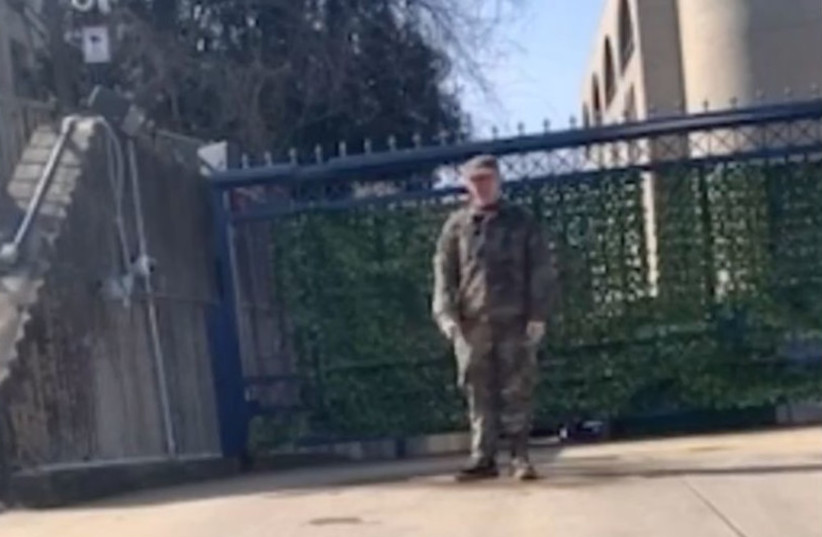Some US servicemen have begun seeking conscientious objector status in protest of the United States’s role in the Israel-Hamas war, claiming that the self-immolation of Aaron Bushell was a starting point in their journey to object, the Guardian reported on Friday.
For many of the servicemen interviewed by the British newspaper, the issue of civilian casualties in Gaza became a concern for them after the suicide of US Airman Aaron Bushnell - who set himself on fire in protest of the war in February.
Joy Metzler, a second lieutenant in the US Air Force, told the site that images of the humanitarian situation in Gaza had disturbed her, but it was Bushnell’s death that made her begin actively researching the history of the conflict, she said. This research led her to file for objector status.
“I didn’t know Palestine was a place before October 7th,” Metzler told the Guardian. “All of a sudden it felt like a light clicking on for me.”
“A lot of the things I had been told about the US’s role in the world were wrong”, she said.

It was while attending a pro-Palestinian protest at the Georgia Institute of Technology that she learned of the objector status.
“It’s not common knowledge,” said Metzler. “You don’t want to advertise to the people that are working for you that there’s a legal way for you to break your contract if you start to feel weird feelings.”
Metzler filed her application in July and is currently awaiting a response.
Larry Hebert, another US senior airman, described his journey to conscientious objector as “excruciatingly long.” He began by staging a hunger strike outside the White House and later tried to end his service as the wait for objector status was too long.
When his attempts to voluntarily leave the military were rejected, Herbert said he began to refuse orders and was subsequently disciplined and is currently awaiting release on administrative grounds.
For Herbert, images he saw on TikTok inspired him to begin the process.
“I had to get out,” he said. “I didn’t want to be a part of any of it.”
Juan Bettancourt, a third US airman who also filed for conscientious objector, told the Guardian “There’s a lot of deep-seated criticism and moral disgust at the complicity of our government in the genocide in Gaza.”
Bettancourt accused the US Military of “brush [dissent] under the rug.”
Are more servicemen objecting now?
The Center on Conscience and War is just one of several organizations established to support military servicemen in seeking objector status. Bill Galvin, a Vietnam-era objector, and director of counseling at the center, claimed that the organization supported the applications of 50-70 servicemen seeking the status per year and added that this year had seen more applications than previously.
“Almost everyone that I’ve talked to has at least cited what’s happening in Gaza as a factor in causing them to rethink what they’re doing,” Galvin said. “Some have actually said, ‘I know that the airplane that I’m doing maintenance on is delivering weaponry to Israel and so I feel complicit.’”
Despite Galvin’s claims of an uptick in objector status seekers, a spokesperson for the US Air Force told the Guardian that applications since 7 October “are on trend with pre-conflict averages.”
